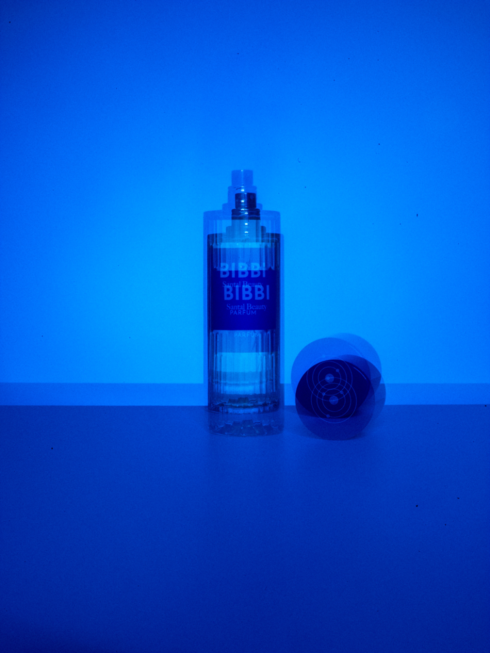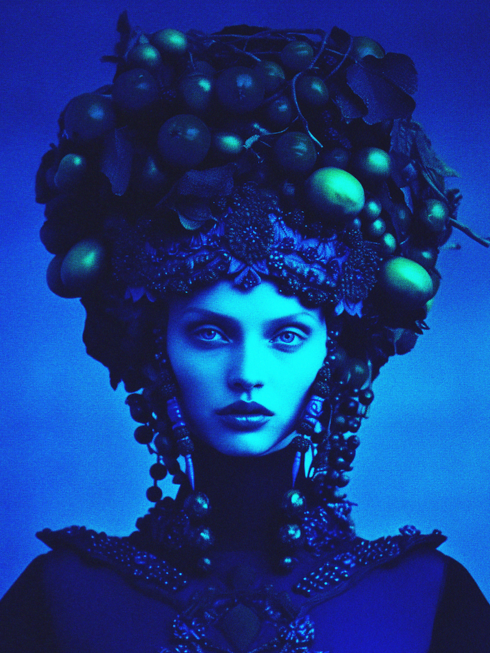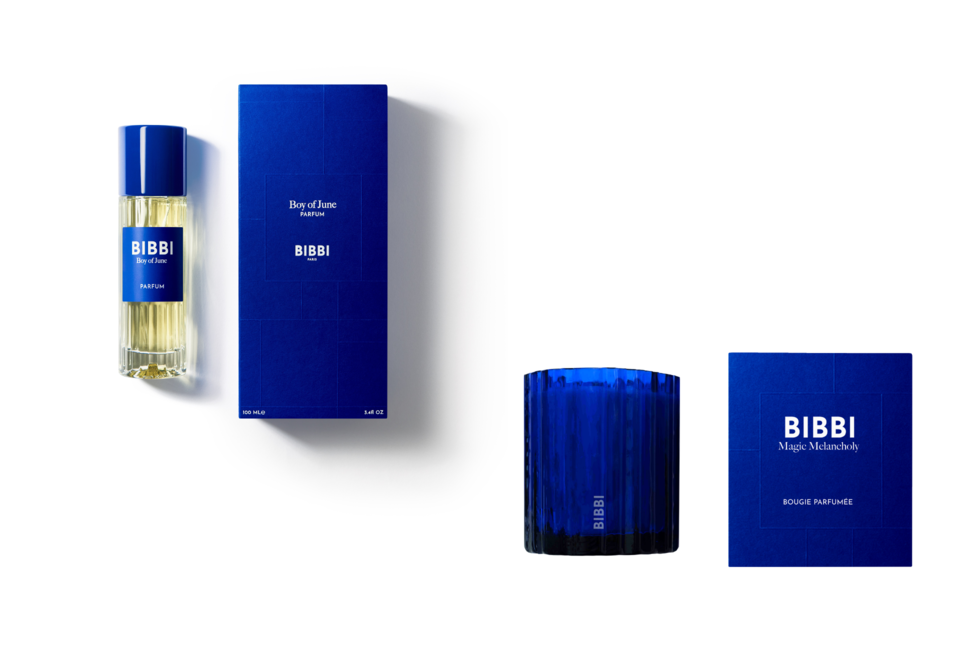I Am Here to Stay: The Story of Bibbi Parfum and the Latest Launch, Fruit Captain
Written by Natalia MunteanStina “Bibbi” Seger, founder of Bibbi Parfum, has always been drawn to the world of fragrance, finding inspiration from her childhood memories and a deep connection to meditation. After years of working in graphic design and concept development, she decided to pursue her true passion for perfumery, launching Bibbi Parfum in 2023. The brand quickly gained attention, with its launch at Liberty in London marking a significant milestone.
At the heart of Bibbi Parfum is an intuitive, meditative approach to fragrance creation. “I want my perfumes to surprise,” says Stina, emphasising the importance of creating scents that evolve on the skin and offer a journey for the wearer. Each fragrance tells a personal, dreamlike story, often inspired by her meditative states, to convey a specific emotional experience rather than focusing on traditional olfactive categories.
The latest addition to the collection, Fruit Captain, embodies Stina's vision of adding excitement and sunshine to her fragrance repertoire. This unisex scent, part of a trilogy of fruity fragrances, invites wearers into a world of vibrant, warm notes that feel like pure sunshine. With this launch, Stina continues to surprise, breaking boundaries in the fragrance industry with an intentional blend of gender-fluidity and emotional depth.
Natalia Muntean: On your website, it says, “Bibbi is Stina, and Stina is Bibbi.” Could you explain that?
Stina “Bibbi” Seger: Bibbi is my nickname, but it also represents my subconscious state of mind. I wanted to connect meditation and fragrance and give customers a piece of what I experience in that meditative state—a piece of me.
NM: What do you consider the most important element in creating a memorable fragrance?
SS: The element of surprise. I rarely smell other brands’ fragrances because I don’t want to be influenced by them. I think it's so important to be true when you do something like this. when you smell Bibbi fragrances, I want you to think, “Wow, what is this?” I want them to be surprising. The combination of notes is very different from other brands. The fragrances are layered and deep, and every note has its own moment on the skin. It evolves on the skin, and it takes you on this journey that I really wanted to give to the one wearing it.
NM: You mentioned layering and how you combine the notes. Can you tell me a little bit more? How do you decide which notes to combine, and how much do you let your intuition lead that process?
SS: I would say that intuition is key. Feeling intuition, that's the key to creating a successful fragrance. Because once you start to look at trends—because there are a lot of trends—you get influenced. And I don't want to be following a trend; I want to be more of a trendsetter or have surprising fragrances. Like Swimming Pool, for instance—there's nothing like Swimming Pool on the market. I had no idea what would happen with this fragrance. I was like, “I don't know what's going to happen,” but it’s a success.
To be able to create something new is very difficult. And of course, there are similarities between Bibbi and other fragrances—it's inevitable. But trying to go with gut feeling and intuition, that's key.
Also, for me, creating the collection—I work with a perfumer, of course—and I think the fact that I'm a woman and also Scandinavian adds something new to the fragrances. I didn’t think of olfactive categories when creating the collection; it was all based on my experiences and meditative state. So I wrote them down, created visuals for the stories and narratives, and knew some of the notes I wanted in the fragrance. Then I sent it to the perfumer, and we worked a lot back and forth.
I know the feeling I want with the fragrances more than the exact notes. For example, when creating Boy of June, I knew I wanted a patchouli-based fragrance. However, creating a very balanced patchouli fragrance is challenging because patchouli can easily take over the whole fragrance. But when it’s there, balanced perfectly, it’s so good.
I think it’s the same with the others. I do have some notes in mind, but I also let the perfumer do their work. It’s a collaboration but I know the feeling I want the fragrance to convey.
NM: Did you always follow your intuition?
SS: I didn’t always follow my gut feeling. And every time I didn’t, it wasn’t good, you know. I think that’s true for a lot of people—when you have a feeling and you go against it, it doesn’t turn out well. So no, I didn’t always follow it, but I’ve always had very strong intuition. Especially now, as I’m getting older, I’m coming back to it. I think there’s a period in life—maybe between 15 and 25—where, at least for me, I was completely lost. I was searching, maybe trying to figure things out. I think the person we are before stepping into the teenage years is kind of the core of who we are. Then we go on this journey, trying things, almost trying on different personalities, like teenagers do. Now, I feel like I’m coming back to that 11-year-old girl. I think I’m closer to her now than ever.
NM: I love it when women say that. I mean, men as well, but I think women are more in touch with that—or that’s what I experience. What are some notes or smells that you work with more, or that you prefer?
SS: Definitely woody notes. All of the fragrances have a woody base. And even though it’s quite common, I think I let the woodiness be very present in all of the fragrances.
Also, green notes—I notice, without thinking about it, that I have a lot of green notes in my fragrances as well.
One ingredient that I love is ambroxan. I think ambroxan is special—it has everything. It’s almost like it has this goodness. It’s an animalistic feeling, a molecular feeling - a very interesting note.
NM: BIBBI Parfum is described as a journey into the subconscious. How do you translate these abstract, dreamlike experiences and characters from meditation into tangible scents?
SS: When I write the experience down, I create some kind of visual aspect to it and then decide on the notes. But when it comes to creating the fragrance, it’s all about the feeling of the scent—when I smell it, what is the feeling? Ultimately, it’s more than the experience itself; it’s the feeling I want to convey—the mind-shifting part. That, I think, is the essence. It’s almost like: What do I want people to feel when they smell this? That’s the glue between the dreamlike concept and the perfume. The feeling is the bridge, maybe.
NM: Do you go into meditation to feel or visualise a specific feeling?
SS: What I normally do in my day-to-day meditation is just a breathing exercise or a more passive meditation—the kind of meditation we usually think of. Sometimes I do a gratefulness meditation, where I try to connect with my higher self, or something similar. But with other types, like quantum jumping meditation, I might have an intention or a life question, or I might just want to go on this journey. It depends on where I am, and what I want from the meditation. I’ve had a lot of meditations where I was seeking an answer, but mostly now, I just like to go on those journeys—those dreamlike journeys. I let myself go with it.
NM: Can you tell me a little bit about the names of your fragrances? I saw that each fragrance comes with a little story.
SS: Each story connected to the fragrance comes from an experience I had in my meditative state. They describe the experience or the vision I had. The names of the fragrances—even if you don’t know the story behind the fragrance or the meditation experience—are designed so that when you read the name and smell the fragrance, you get a little hint of the story. Even though you don’t know the full story, you’ll still feel it.
I think there’s something about the names. Instead of stating the ingredients, like a lot of brands do, which is fine, I prefer to let you smell it first. Then you can interpret it for yourself. It’s almost like a gift. I don’t want to tell you, “This should smell like this or that.” It’s up to you to decide what it smells like. Sometimes, if a scent is labelled as a flower or something, but you don’t feel that you might feel a little bit intimidated. So, I want to keep an open mind when people smell the fragrances.
NM: From what I understand about the story of the brand and how you relate to scents and create them, it seems like scent is a medium for storytelling. Do you think that scents and perfumes can convey emotions better than other art forms?
SS: I do think so. It might depend on the person, but I think, again, scents will make you feel something. If you have a sense of smell, you will feel something when you smell them. With music or paintings, sometimes you just see or listen to something and don’t feel anything, but scents will always give you a feeling. Whether you like it or not, it’s there.
You can’t fight against it. The sense of smell is our strongest sense. For a long time, we thought it was the sight, but it’s the smell. It’s a very strong sense for us and an important one for our survival.
NM: Your perfumes are unisex. Was that an intentional decision? How did you come to it?
SS: The categories of feminine or masculine scents are just marketing. There’s no real difference. I don’t want to label them that way. All niche brands have perfumes that aren’t necessarily targeted towards a specific gender. A lot of my fragrances are worn by both men and women. For example, Santal Beauty and Ghost of Tom.
NM: Can you tell me a little bit more about your latest launch, Fruit Captain? What inspired its story?
SS: First of all, let me tell you the story of this experience that I had, and then I can talk about the notes. So in the dawn of existence, I stood alone in an untouched garden. It was a place so breathtaking, that no human words could convey its beauty. And the number of emotions just flooded through me at once: excitement, curiosity, anticipation, joy, euphoria—all of that. And then suddenly, she appeared. She, the first captain. With a mysterious smile, she held out an apple filled with untold temptations. And I just couldn’t stop myself. I took a bite, and in that moment, the world shifted, and the journey had begun.
Fruit Captain is part of a trilogy of fruits. So this is the first one, and the next one will be launching in April next year. It’s a little journey within the fruit world. I wanted to create something that complements the rest of the collection, which is a bit more mysterious, and a bit deeper. This one is more exciting, like sunshine.
When I smell fragrances, I often associate them with colours. This one feels like yellow, orange, like pure sunshine. That’s the essence of this fragrance. A lot of people think “Captain” is male. So that’s why I like to add an element of surprise because if you look at the brand, you wouldn’t necessarily think it’s super feminine. It’s very gender-fluid. You’ve got the blue colour, and the bottle is grounding. But then, I like to add an element of femininity, almost like a secret.
NM: Since Bibbi Parfum is so tied to your personal, subconscious experiences, how did this journey with the perfume and the brand influence your growth, creativity, and overall journey?
SS: It influences me a lot. I’m 40 now, and sometimes when I look at my life, I feel like I’ve just started. It’s strange— the older I get, the more I feel like there’s so much left to do. I’ve just scratched the surface of life. This experience is incredible if we allow it to be, and I feel like I’m on a completely new journey now.
That’s the beauty of life: if you stay open and curious, life will give you so much. When I look back on the past 20 years, I think about the next 20— what will happen? I’m so excited. That’s the feeling I have. I’m always working on myself, and growing. We’re supposed to evolve and educate ourselves. Sometimes, I feel like I don’t have enough time—I want to read more books, discover more music, and read more poetry. Life is such a blessing, you know? We decide whether we see it that way or not. I just love being older. I feel this calmness that comes with age. Turning 40, I felt, “Finally, I’m legit.”
NM: Can you tell me a little bit about the candles in your collection?
SS: The candles are heavily inspired by Scandinavian folklore and its mysticism. Also, as I mentioned before, the 11-year-old in me still believes in things like fairies, nymphs, trolls, and witches. I think there’s something exciting about that—it takes me back to being a child. I think it’s beautiful to read about these things. It’s something we’ve lost, and I think we need to bring that magic back into our lives. Perhaps especially in Scandinavia, where we barely believe in anything. We need to believe in something. It’s something that everyone in Scandinavia can relate to, as it’s been with us for so long. For instance, every child has this little door in the house before Christmas for Santa’s Little Helper. It’s something we have, whether we want it or not.
So, for me, the candles are a celebration of reconnecting with that inner child, embracing the mysticism and beauty of that world, and appreciating the beauty of nature, especially the deep forests. I wanted to create something beautiful—something we could reuse, perhaps even keep the jar. I worked with a glassblowing studio deep in the forests of Småland, and it took much longer than we had planned, delaying production by about three months. But it was important to me to create something handcrafted - a celebration of my Scandinavian heritage. As a child, I used to make candles with my grandmother before Christmas, so it’s very close to my heart.
NM: What about the scents and the names of the candles? For example, one is called The Wolf Mother. When I opened the box and read the story, I thought, “Wow, this is so cool.”
SS: That’s exactly what I wanted—something inspired by Swedish folklore but with my interpretation of it. And The Wolf Mother—I think, if we dig deeper, every woman has this “wolf mother” inside of her. I think we just need to let her out. It’s about embracing the power of intuition. My intuition came back to me when I had my first child, and later, my second. Everything in life is guided by intuition. I think women are incredibly powerful beings. We’re kind, but we have so many layers that sometimes we forget about. We nurture and take care of others—children, women’s children, and so on. There’s something truly beautiful in that, something that may have once been seen as a weakness, but it’s a great strength. The Wolf Mother is a celebration of that strength.
NM: What was the most surprising feedback, or maybe emotional response you got to one of your fragrances?
SS: That's actually when people cry. I've had it happen several times - people started to cry when they smelled the fragrance. It was overwhelming. The scent took them somewhere.
NM: How do you envision BIBBI Parfum evolving, and what legacy would you like your brand to leave in the world of luxury fragrances?
SS: I want Bibbi to be big. That's really it, and it’s set off to a very good start. It’s been an incredible year. We got an investor this year who is super high-level—he’s the general manager and comes from Aesop, and he was also previously with Diptyque. So, it feels like a stamp of approval that we’re doing something right. And I think, again, with Bibbi fragrances, you can feel the depth in the fragrances that you don’t really get with other brands. I must say, other brands also have very beautiful fragrances, but they’re not the same. It’s normally one note they’ve been working with, like a big patchouli fragrance or a big sandalwood fragrance.
I want to be huge. Also, something that’s very important to me is the female part. I was in South Africa recently with some of the best brands in the world, and I was invited as one of them. I was the only woman, nine men and me. So, I feel like there’s something we need to do here. 80% to 85% of fragrance consumers are women but men create the fragrances. I think we’re missing that part in the industry, and why should men create fragrances for us? I don’t understand that. So I’m here to stay. I’m going to build this brand, and I’m going to do it big.









